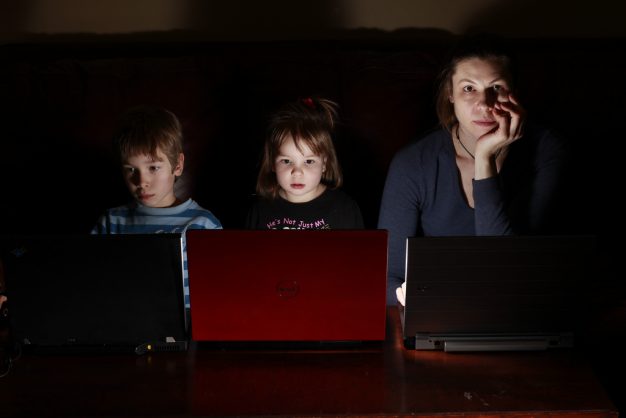
Denmark wants to stop ‘Big Tech’ from collecting data on children
The Danish government wants to try and stamp out the massive accumulation of data on young people by upping the age limit for the collection of personal data from children by tech giants like Google, Snapchat and Meta.
It plans to make between 15 and 16 years the age at which children can consent to share personal data with tech companies, from the current age of 13. Firms will also need parental consent to use data from younger children.
“The tech giants must take greater responsibility,” said Business Minister Morten Bodskov, as the government announced its plans to rein in the influence of global tech companies.
“We must put an end to their opaque algorithms, which with crazy methods keep children and adults in front of the screen and harvest unimaginable amounts of personal information. We must introduce, among other things, age verification and a higher limit for data protection of children, and the government is acting immediately. That is why I am incredibly happy with the recommendations the expert group has come up with.”
‘We must not be naive to the potential problems’
Age verification requirements will have to be introduced to protect children from inappropriate content, such as porn or videos of war. This effectively means that anyone wanting to access websites or download apps with content that is not suitable for children must digitally confirm they are an adult.
These measures are based on feedback from the government’s tech expert group, which has set out 13 recommendations on how to better handle some of the issues associated with the tech giants’ platforms. The government agrees with the recommendations and will work to implement them both in Denmark and in the EU.
Jakob Engel-Schmidt, Denmark’s Minister of Culture added that while the country should ‘not be afraid’ of new technology, nor should people ‘be naive or close their eyes’ to the potential problems.
“Technological development has given us a lot of new opportunities and in many ways made our lives easier, ” he said. Life in front of the screen takes up a lot for children and young people, and this suggests that social media contributes to dissatisfaction and bullying.
‘Social media can contribute to bullying’
“We will have to set up clear boundaries for the tech giants so that we can achieve democratic control of digital life. I therefore welcome the expert group’s recommendations. The government will, among other things, make new rules for age verification, so that we ensure that children are not exposed to harmful content as far as possible and can only access services with age-appropriate content.”
One of its European neighbours, Germany, has already set an age limit of 16 years, while other including The Netherlands, Hungary and Lithuania are developing similar legislation.
Further afield, the U.S. is working on an online privacy bill, that would bar companies from collecting personal information on those aged 16 or younger without consent and require companies to allow young users to erase personal information.
Additional information from Reuters News




